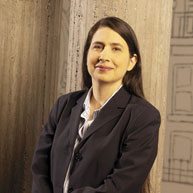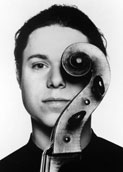Headliners: Funding takes a hit, Mozart still a hit
Headliners: Funding takes a hit, Mozart still a hit McGill University
User Tools (skip):
Funding takes a hit, but Mozart still a hit
But they spend how much on defense?

Heymann takes U.S. to task.
They are the sort of findings that make you rub your eyes and double-check your eyesight. The United States, the land of milk and honey, virtually dead-last among high-income nations in terms of providing decent working conditions for families? So says a report recently published by Dr. Jody Heymann, director of McGill's Institute for Health and Social Policy. As reported in the New York Times, Associated Press, CNN, CBS, BBC, Fox News and Canadian Press, to name a few, the numbers are staggering. Of 173 countries studied, 168 guarantee paid maternal leave. Not so the United States—putting it on a par with Lesotho, Liberia, Swaziland and Papua New Guinea. At least 107 protect working women's rights to breastfeed on the job, with 73 of them making it a paid break. There are no such guarantees in the United States. "More countries are providing the workplace protections that millions of Americans can only dream of," she said.
Breast cancer study IDs troublesome gene
Another McGill researcher made big media waves with his recent study on breast cancer. As reported around the world, including by France's Le Monde and Altavista Morocco, the team led by Dr. Michel L. Tremblay, director of the McGill Cancer Centre, has discovered that suppressing the activity of the PTB1b gene in mice predisposed to developing breast cancer helped slow the growth of, and even prevent, certain types of tumours. The discovery is even more promising because in 1999 the same team uncovered a link between the same gene and type II diabetes and obesity. A large number of pharmaceutical companies have already developed inhibitors used in the treatment of these diseases. Dr. Tremblay, who, along with his team, was also selected as Personnalité de la semaine by La Presse, said that "adapting these compounds is all that is needed to attack breast cancer."
No walk in the park for Pack
The Globe and Mail ran a story about Dr. Christopher Pack, neurology and neurosurgery professor, to illustrate how the federal funding system is operating on thin ice. Called "a poster boy for the promise of Canadian science," the CRC in Neurophysiology of Vision applied for a grant from the Canadian Institutes for Health Research (CIHR). Not only did the MNI researcher get the grant, but his application received the highest score possible, ranking first overall among submissions.
Dr. Pack's elation quickly turned to disbelief when he learned that, although accepted with high praise, his proposed budget was slashed by 44 percent. Now, though armed with the very best equipment money can buy, Dr. Pack can't afford to hire the staff necessary to run his ground-breaking research on how the brain interprets visual images. "It's like the Canadian public hired me to bake a cake but then they didn't provide me with all the ingredients," he was quoted as saying. "I can't just bake a smaller cake."
Rock me, Amadeus

Haimovitz hits a high note.
Bette Marshall
McGill music prof Matt Haimovitz earned rave reviews in the New York Times for his participation in a concert at
Merkin Concert Hall marking the 251st birthday of Mozart. Calling the virtuoso cellist a "crack musician," the Times' critic praised Haimovitz's "huge, dark sound." Haimovitz was joined onstage by violinist Jonathan Crow and violist Douglas McNabney to play Divertimente in E flat, which the reviewer called a "drop-dead gorgeous piece" that the McGillians "played ravishingly."

